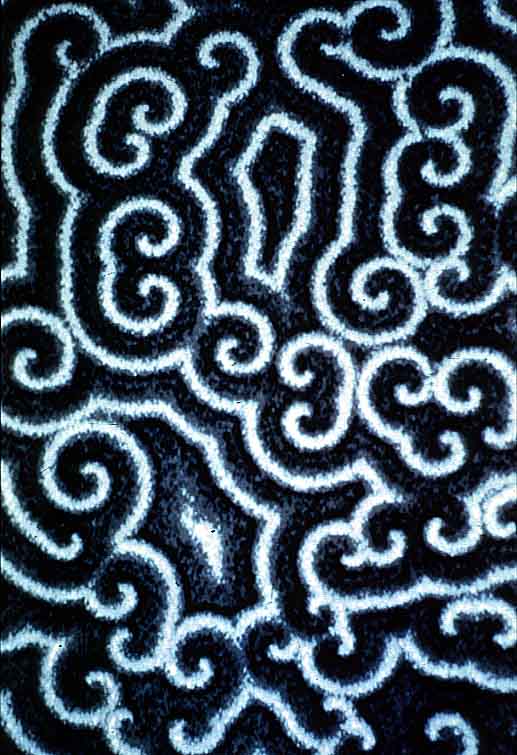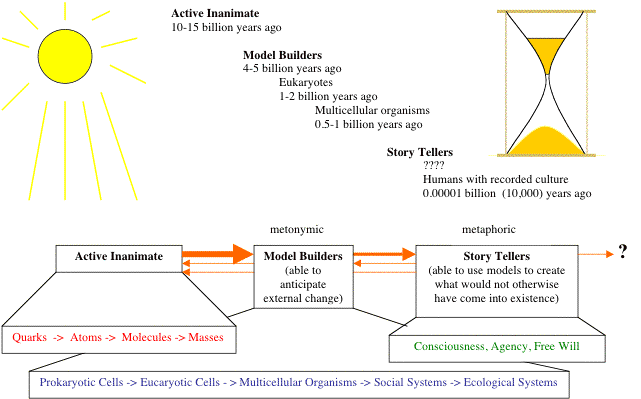

Emergence
Biology 361 = Computer Science 361
Bryn Mawr College
Spring 2006



| 
|
EmergenceBiology 361 = Computer Science 361
| 
| 
|
| An external observer of the universe (or some part of it) may perceive "agents" but agents do not in fact exist except in the mind of the observer. The universe as it exists at any given time and as it changes over time can be understood without the concept of "agents". |

|
Both conductors and planners/architects are themselves products of on ongoing process of emergence. So too is the brain, meaning, purpose, science, and inquiry itself.
All are (non-deterministically?) derivitive of properties and interactions that existed at earlier stages of emergence and that persist at lower levels of organization. Having come into existence, each becomes both an influence on lower levels of organization and an ingredient for the creation of new levels. |
|
The immediate questions at hand in becoming familiar with agent-based models:
Assignment for Monday:
| Course Home Page
| Complexity | Serendip Home |